Common signs of brake system issues include unusual noises like squealing or grinding and a spongy brake pedal. These indicate potential problems that need immediate attention.
Brake system issues can compromise your vehicle’s safety. Recognizing the early signs helps prevent costly repairs and accidents. Unusual noises, such as squealing or grinding, often signal worn brake pads. A spongy brake pedal may indicate air in the brake lines or a brake fluid leak.
Vibrations or pulling to one side when braking can also point to issues. Regular brake inspections and prompt repairs ensure optimal performance. Addressing these warning signs early extends the life of your braking system. Always prioritize brake maintenance for a safer driving experience.
Squealing Noises
Squealing noises from your brakes can be alarming. They might indicate an issue. Understanding the causes can help you take timely action.
Causes Of Squealing
Several factors can cause your brakes to squeal. Below are some common reasons:
- Worn brake pads: Brake pads have a metal indicator. When they wear out, they produce a squealing sound.
- Dust and debris: Dirt can accumulate on the brake pads. This can cause squealing noises.
- Moisture: Water or humidity can make brakes squeal temporarily.
- Glazed rotors: Overheating can cause the rotor surface to harden. This can lead to squealing.
- Improper installation: Poor installation of brake components can cause noise.
When To Be Concerned
Not all squealing noises mean trouble. But some signs need attention:
- Persistent noise: Continuous squealing every time you brake needs a check.
- Performance issues: If braking performance drops, inspect immediately.
- Visible wear: Look at the brake pads. If they are thin, replace them.
- Vibration: If you feel vibrations while braking, get a professional check.
- Dashboard warning: The brake system warning light on the dashboard should never be ignored.
Keep an ear out for these noises. They help keep your car safe.
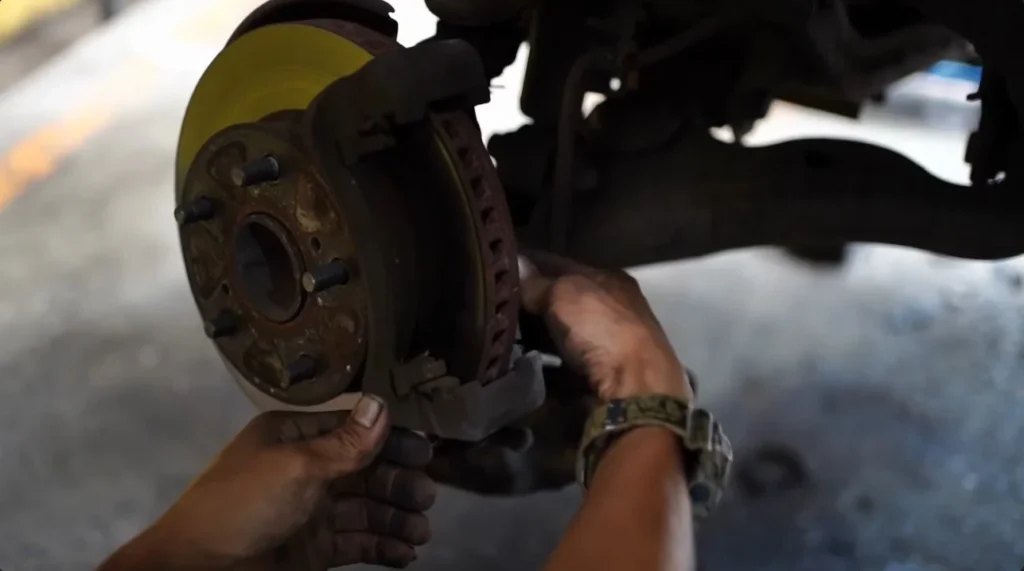
Grinding Sounds
Hearing grinding sounds when you press the brake pedal can be alarming. These sounds indicate a serious issue with your brake system. Addressing this issue promptly can prevent costly repairs and ensure your safety.
Metal-on-metal Contact
Grinding sounds often result from metal-on-metal contact. This happens when brake pads are worn out. Worn-out brake pads expose the metal backing plates. These plates then grind against the brake rotor.
This can cause severe damage to the rotors. Replacing rotors is expensive. Thus, it’s crucial to check your brake pads regularly.
Immediate Actions
Upon hearing grinding sounds, take immediate action:
- Stop driving and check your brakes.
- Inspect the brake pads for wear.
- Contact a professional mechanic if unsure.
Ignoring these sounds can lead to brake failure. This puts you and others at risk.
Remember, regular maintenance prevents these issues. Always ensure your brake pads are in good condition.
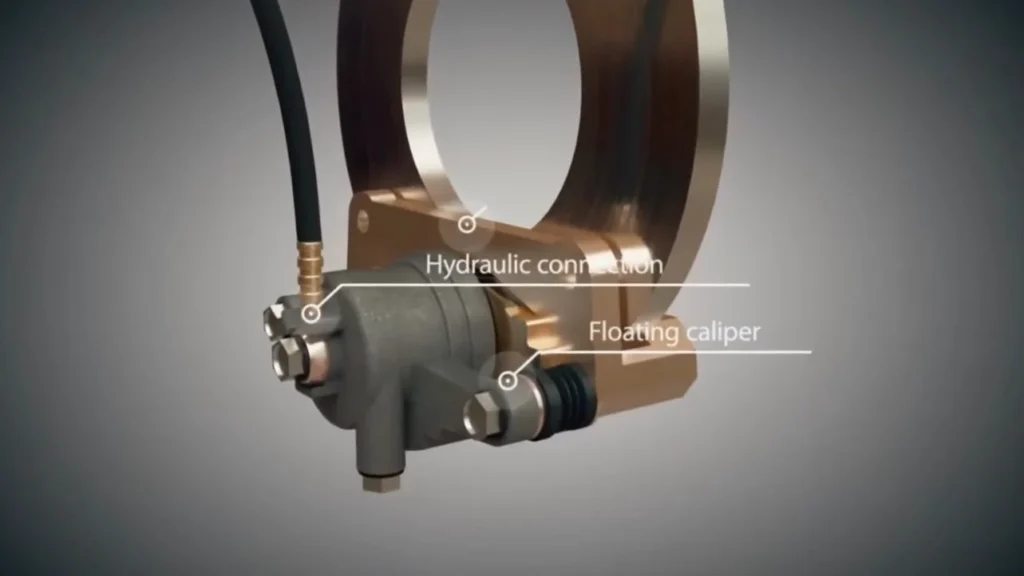
Vibrations When Braking
Feeling vibrations while braking can be alarming. It signals an issue in the brake system. These vibrations usually occur due to uneven surfaces or mechanical problems. Addressing this promptly ensures your vehicle’s safety.
Warped Rotors
Warped rotors are a common cause of vibrations. Rotors can warp from excessive heat. This heat builds up from hard braking or heavy loads. When rotors warp, they create an uneven surface. This unevenness causes the brake pads to wobble. The wobbling is felt as vibrations in the brake pedal.
Impact On Driving
Vibrations affect driving in several ways. They reduce the brake system’s efficiency. This makes stopping distances longer. Vibrations also cause uneven wear on brake pads. This wear leads to more frequent replacements. In severe cases, control over the vehicle can diminish.
| Issue | Effect |
|---|---|
| Warped Rotors | Uneven braking and vibrations |
| Reduced Efficiency | Longer stopping distances |
| Uneven Wear | Frequent brake pad replacements |
| Loss of Control | Reduced vehicle control |
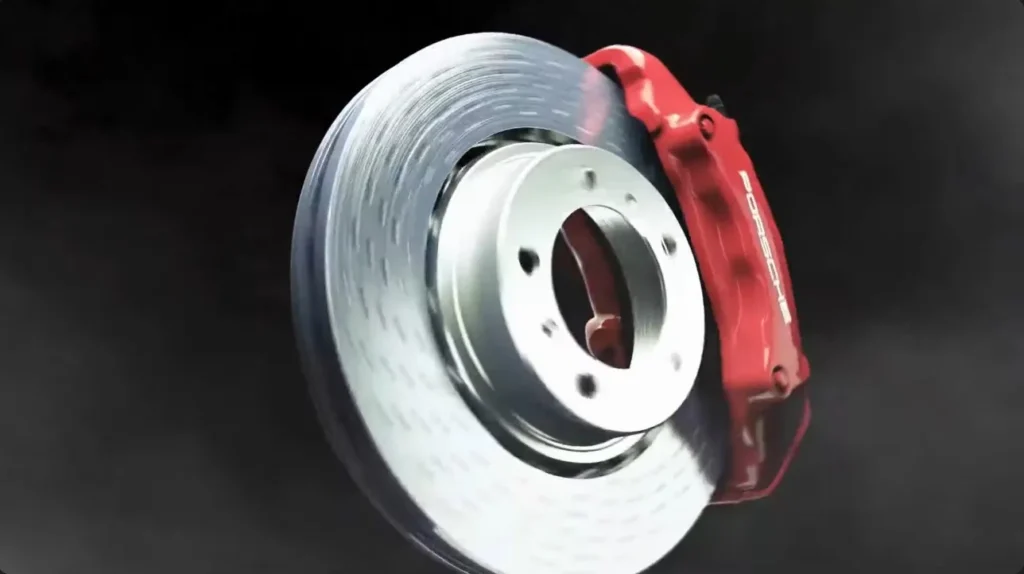
Soft Brake Pedal
A soft brake pedal can be a serious issue. When you press down, the pedal feels mushy or spongy. This can mean your brakes aren’t working well. It’s important to know what could be wrong.
Hydraulic Issues
Your car’s brakes use a hydraulic system. This system relies on brake fluid to function correctly. If there’s a problem, the brake pedal can feel soft. Common hydraulic issues include:
- Leaking brake fluid
- Worn brake lines
- Damaged master cylinder
Air In Brake Lines
Air in the brake lines can cause a soft pedal. Brake fluid is incompressible, but air is not. If air gets into the lines, it can make the pedal feel spongy. Causes of air in brake lines include:
- Improper brake bleeding
- Leaking brake lines
- Faulty brake components
| Hydraulic Issue | Effect |
|---|---|
| Leaking brake fluid | Soft pedal, reduced braking power |
| Worn brake lines | Brake fluid loss, soft pedal |
| Damaged master cylinder | Brake fluid bypass, soft pedal |
| Air in brake lines | Spongy pedal, reduced braking power |
Pulling To One Side
When driving, have you noticed your car pulling to one side? This could indicate a problem with your brake system. Pulling to one side can make driving unsafe. It’s crucial to address this issue quickly.
Uneven Pad Wear
One common cause of pulling to one side is uneven pad wear. Brake pads press against the rotors to stop the car. If one pad wears out faster, it can cause the car to pull.
| Signs of Uneven Pad Wear |
|---|
| A car pulls to one side |
| Squeaking or grinding noise |
| Vibration in the steering wheel |
Caliper Problems
Another reason for pulling to one side could be caliper problems. Brake calipers squeeze the brake pads against the rotors. If a caliper sticks or fails, it can cause uneven braking.
- Sticking the caliper causes brake drag
- Failed caliper causes weak braking
- The car pulls to the side with the problem
Addressing these issues can ensure safe and smooth driving. Always check your brakes if you notice any signs.
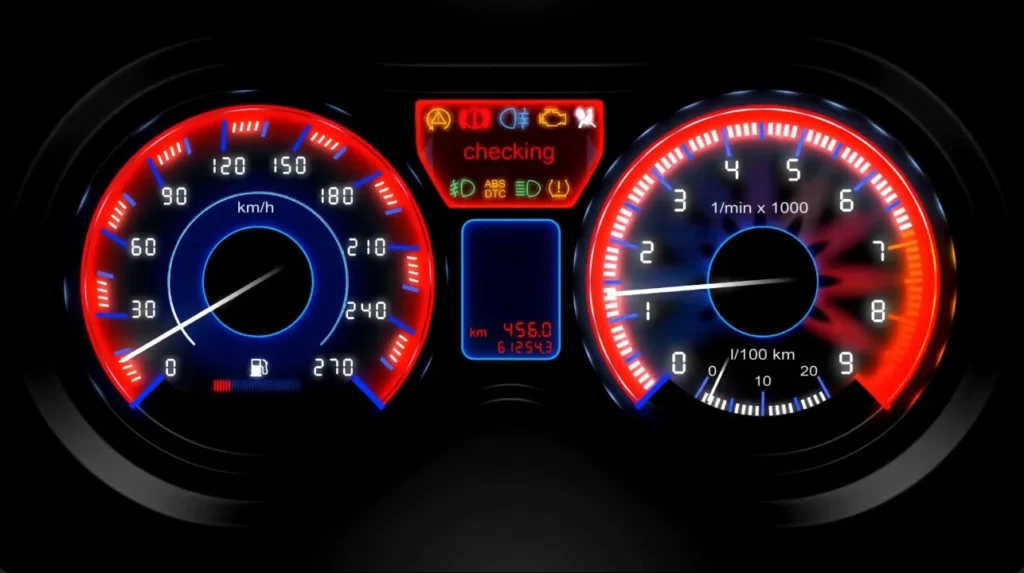
Brake Warning Light
The brake warning light is a critical indicator in your vehicle. This light tells you when there is a problem with the brake system. Ignoring this warning can lead to severe consequences. It is essential to understand what this light means and what steps to take next.
Dashboard Indicators
The brake warning light is one of the most crucial dashboard indicators. It usually appears as a red or yellow circle with an exclamation mark. Sometimes it will show the word “BRAKE” or a “P” for the parking brake.
Here are some common reasons the brake warning light might activate:
- Low brake fluid level
- Worn brake pads
- The parking brake is engaged
- ABS failure
| Indicator | Description |
|---|---|
| Red Circle with Exclamation | General brake issue |
| “BRAKE” Light | Possible brake system fault |
| “P” Light | Parking brake engaged |
Next Steps
If the brake warning light turns on, follow these steps:
- Pull over safely.
- Check the brake fluid level.
- Inspect the brake pads.
- Release the parking brake.
- Contact a professional mechanic.
Never ignore the brake warning light. Your safety depends on it. Address issues promptly to avoid accidents and costly repairs.
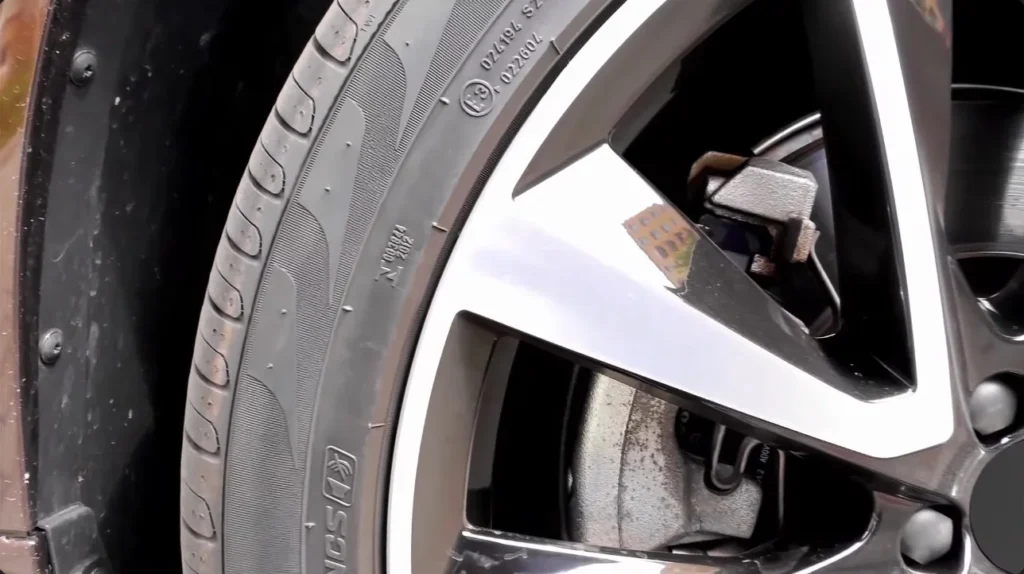
Burning Smell
A burning smell while driving can indicate serious brake system issues. It’s crucial to understand the potential causes and risks associated with this odor.
Overheated Brakes
Overheated brakes are a common cause of a burning smell. When brakes overheat, it’s often due to excessive friction. This can happen during heavy braking or driving downhill for long periods.
Signs of overheated brakes include:
- Strong burning odor
- The brake pedal feels soft
- Smoke coming from the wheels
Overheating can damage brake components. This reduces braking efficiency and increases the risk of brake failure.
Potential Risks
Ignoring a burning smell can lead to serious risks. Overheated brakes may cause:
- Brake Fade: This reduces braking power, making it hard to stop your car.
- Warped Rotors: Excessive heat can warp brake rotors, leading to vibrations and uneven braking.
- Brake Fluid Boiling: If brake fluid boils, it creates air bubbles, which can cause brake failure.
Regular brake maintenance can prevent these issues. Ensure brake pads and rotors are in good condition.
| Sign | Description |
|---|---|
| Burning Smell | Often a result of overheated brakes. |
| Soft Brake Pedal | Indicates possible brake fluid issues. |
| Smoke | Visible sign of brake overheating. |
Addressing brake issues early can prevent costly repairs. It also ensures your safety on the road. Keep an eye (and nose) out for warning signs.
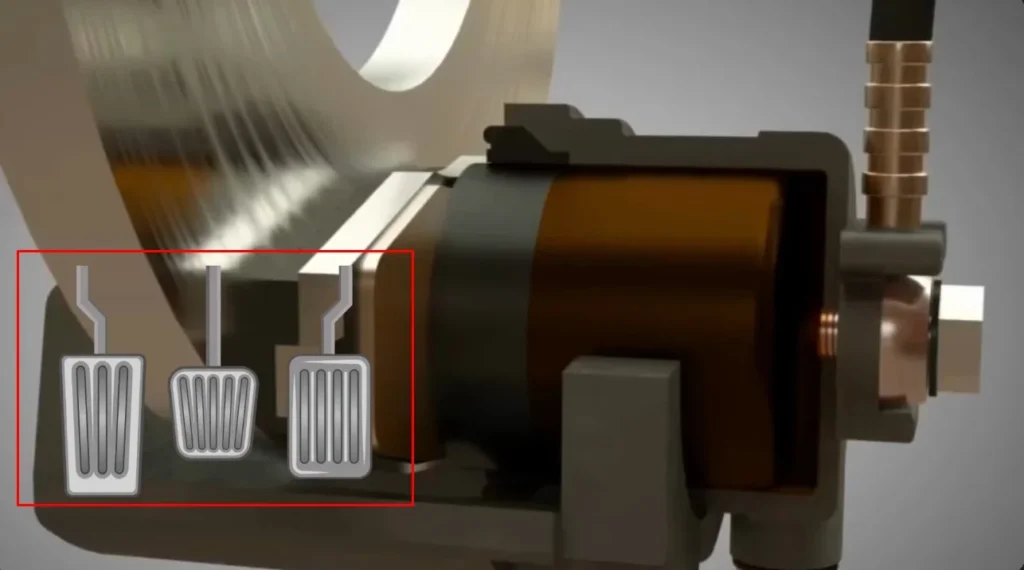
Leaking Brake Fluid
A car’s braking system relies on brake fluid for proper function. Leaking brake fluid is a critical issue that can lead to severe problems. Knowing the signs and consequences helps keep your vehicle safe.
Identifying Leaks
Spotting a brake fluid leak early is crucial. Here are some common signs to look for:
- Puddles under the car: Leaking brake fluid often appears as puddles.
- Spongy brakes: The brake pedal feels soft or spongy.
- Warning light: The brake warning light on your dashboard may turn on.
- Strange smells: Brake fluid has a distinct, sharp odor.
If you notice any of these signs, check the brake fluid reservoir. It is usually located near the engine bay.
Consequences Of Low Fluid
Low brake fluid can cause serious issues:
| Problem | Effect |
|---|---|
| Reduced braking power | Longer stopping distances and slower response times. |
| Brake failure | Complete loss of braking ability, leading to accidents. |
| Corrosion | Brake fluid leaks can cause rust on metal parts. |
Always keep your brake fluid at the recommended level. Regular checks can prevent costly repairs and ensure safety.

Frequently Asked Questions
What Are Common Brake System Issues?
Squeaking noises, vibrations, soft brake pedals, longer stopping distances, and warning lights are common brake system issues.
Why Do Brakes Make A Squeaking Noise?
Brakes often squeak due to worn pads, glazing, or moisture. Regular inspection can help identify the exact cause.
How Do Vibrations Indicate Brake Problems?
Vibrations while braking usually mean warped rotors or uneven wear. A professional should inspect and repair them.
What Causes A Soft Brake Pedal?
A soft brake pedal often results from air in the brake lines or low brake fluid. Immediate attention is required.
Why Is My Car Taking Longer To Stop?
Longer stopping distances can be due to worn brake pads or low brake fluid. Always address these issues promptly.
What Does The Brake Warning Light Mean?
A brake warning light indicates a potential issue like low brake fluid or a problem with the braking system. Get it checked.
Conclusion
Recognizing brake system issues early can prevent costly repairs and ensure safety. Listen for unusual noises, feel for vibrations, and monitor brake responsiveness. Regular maintenance is key to avoiding serious problems. Always consult a professional mechanic if you suspect any brake issues.
Stay vigilant to keep your vehicle running smoothly and safely.

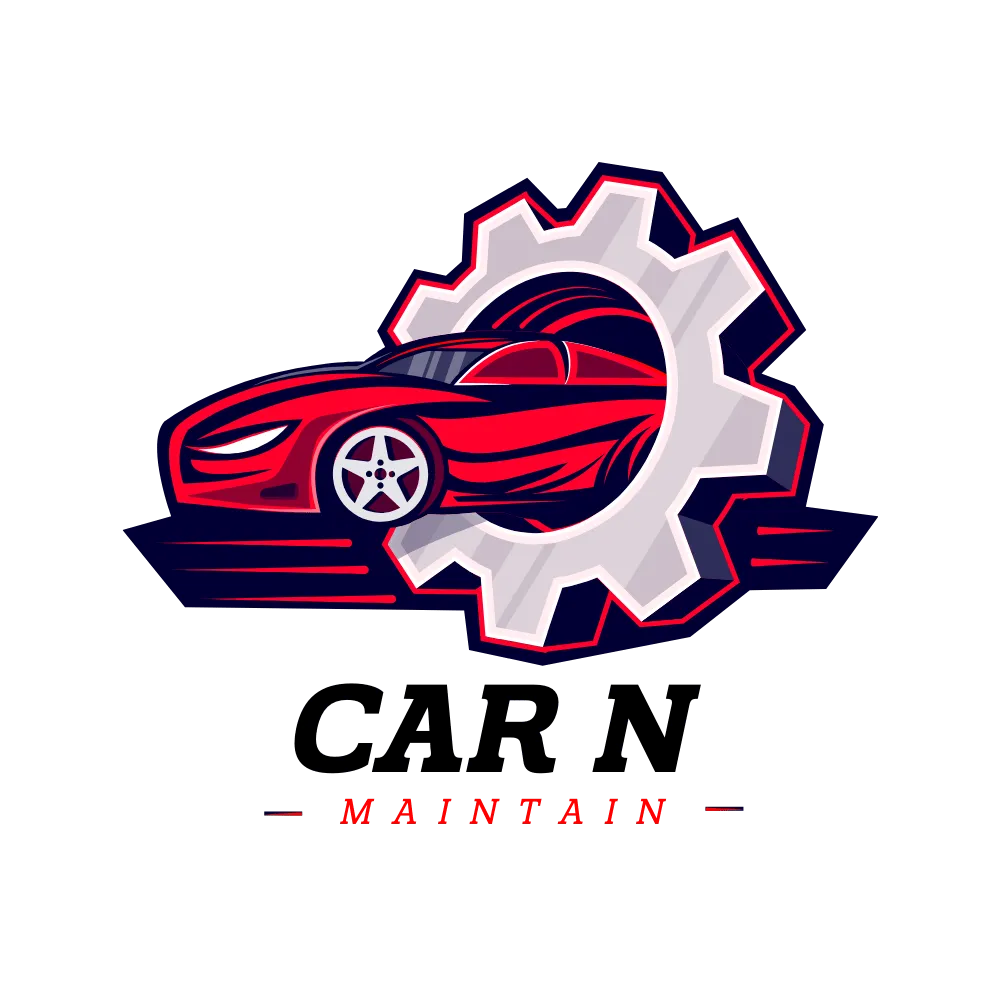
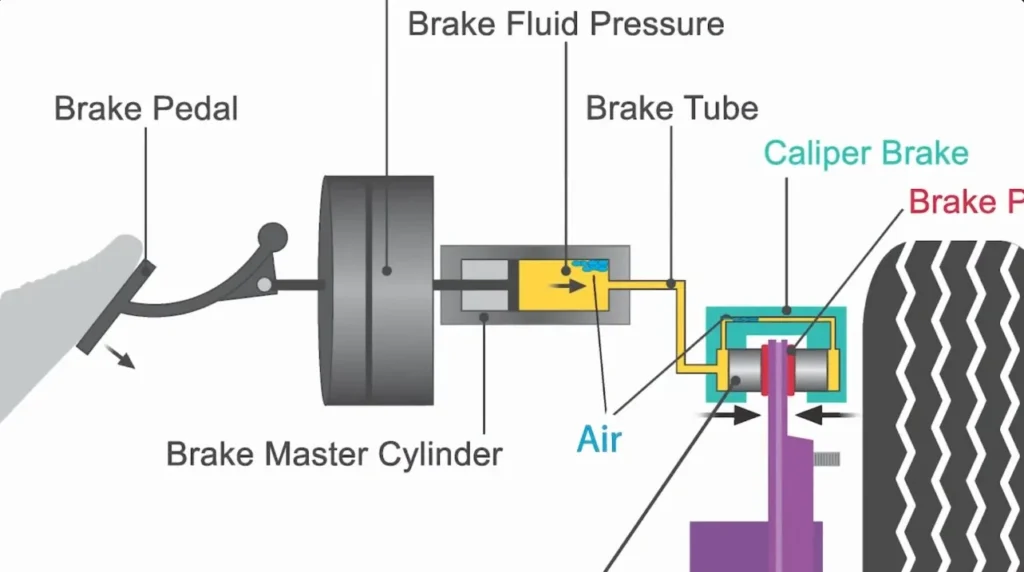
2 Comments
Pingback: Common Signs of Car Braking System Problems to Watch For
Pingback: Common Braking System Issues: Avoid Dangerous Problems Today